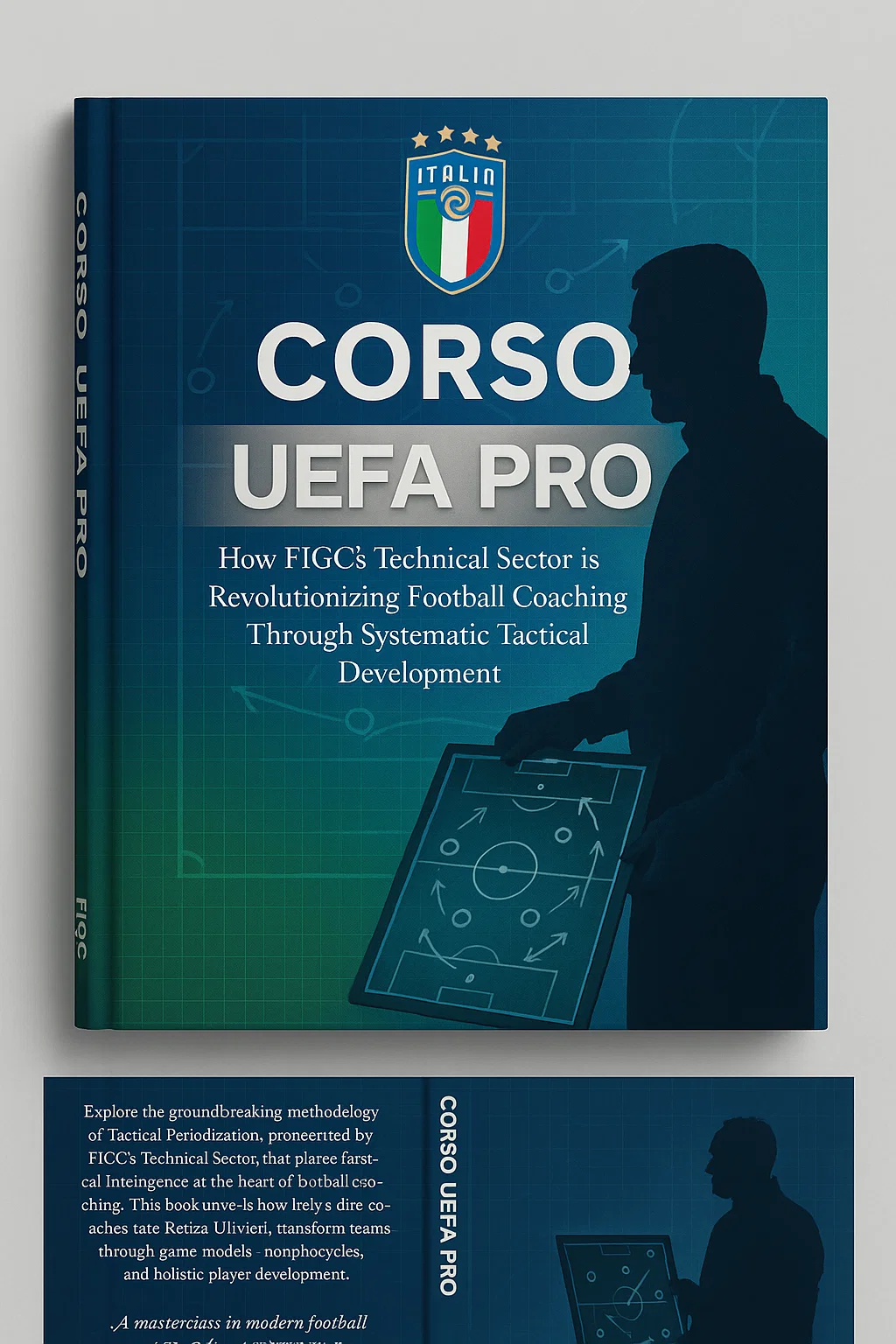
CORSO UEFA PRO: How FIGC’s Technical Sector is Revolutionizing Football Coaching Through Systematic Tactical Development
Football coaching has evolved dramatically over the past decade, with tactical intelligence and systematic development taking center stage. At the forefront of this revolution is the Italian Football Federation (FIGC), whose Technical Sector has pioneered an innovative approach known as Tactical Periodization. The book CORSO UEFA PRO delves deep into this methodology, offering a masterclass in modern football coaching.
In this comprehensive analysis, we explore how FIGC’s cutting-edge strategies—spearheaded by legendary coaches like Renzo Ulivieri—are transforming teams through game models, microcycles, and holistic player development. Whether you’re a coach, analyst, or football enthusiast, this book is a game-changer.
The Evolution of Football Coaching: From Traditional Methods to Tactical Periodization
Football coaching was once dominated by physical conditioning and repetitive drills. However, the rise of Tactical Periodization—a methodology rooted in Portuguese and Italian football—has shifted the paradigm. Instead of isolating physical, technical, and tactical aspects, this approach integrates them into a cohesive system.
The FIGC’s Technical Sector has refined this model, emphasizing:
- Game Intelligence: Decision-making under pressure.
- Position-Specific Drills: Tailored training for each role.
- Dynamic Microcycles: Short, intense training blocks mirroring match scenarios.
For more insights on tactical innovations, check out our related article on Modern Football Strategies.
The Core Principles of FIGC’s Tactical Periodization
1. Game Models: The Blueprint of Success
Every elite team operates under a defined game model—a tactical identity that dictates their style. The FIGC teaches coaches how to develop these models, ensuring players understand their roles within the system.
2. Non-Linear Periodization: Training Like You Play
Unlike traditional linear training, non-linear periodization varies intensity and focus daily. This method, inspired by experts like Renzo Ulivieri, ensures players peak at the right moments.
3. Holistic Player Development: Beyond Tactics
The FIGC emphasizes mental resilience, technical precision, and physical endurance—all within tactical contexts. This holistic approach produces versatile, intelligent players.
For further reading on player development, visit The Science of Football Training.
Renzo Ulivieri and the Italian Coaching Legacy
One of the book’s highlights is its exploration of Renzo Ulivieri, a visionary who shaped Italy’s coaching philosophy. His emphasis on adaptive tactics and emotional intelligence in coaching has influenced generations.
Key takeaways from his methodology include:
- Adaptive Game Plans: Adjusting tactics mid-match.
- Player-Coach Synergy: Building trust and communication.
- Data-Driven Decisions: Using analytics to refine strategies.
For more on legendary coaches, explore our piece on Football’s Greatest Minds.
Why This Book is a Must-Read for Modern Coaches
CORSO UEFA PRO isn’t just a manual—it’s a revolutionary guide that bridges theory and practice. Here’s why it stands out:
✅ Comprehensive Tactical Breakdowns – Detailed analysis of game models.
✅ Real-World Applications – Case studies from top Italian clubs.
✅ Future-Proof Coaching Methods – Preparing for the next era of football.
For additional resources, check out UEFA’s Official Coaching Guidelines and FIGC’s Training Modules.
Conclusion: The Future of Football Coaching Starts Here
The FIGC’s Tactical Periodization is more than a trend—it’s the future. By blending strategy, psychology, and innovation, CORSO UEFA PRO equips coaches with the tools to dominate modern football.
Whether you’re looking to refine your coaching style or understand elite tactics, this book is an essential resource. Dive deeper into football’s evolution with our Advanced Coaching Techniques guide and stay ahead of the game.
Ready to transform your approach? Grab your copy today and join the tactical revolution!
External References & Further Reading
For more exclusive football insights, visit our Football Strategy Hub.
